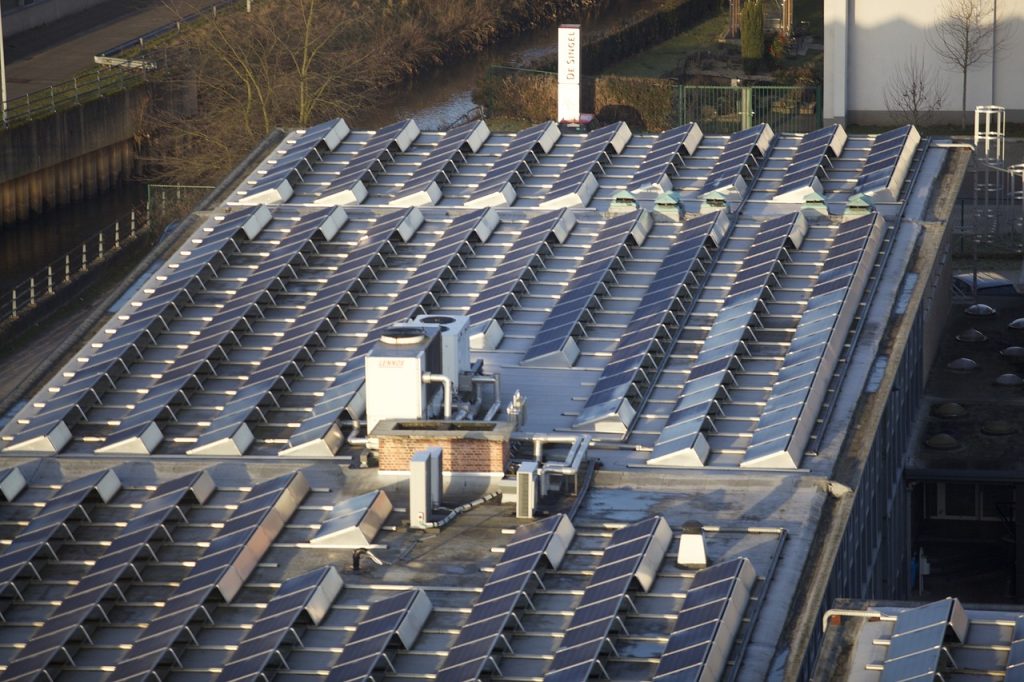Solar energy has become very popular today because it is a clean, sustainable and renewable energy source. In this blog post, we will discuss the basic principles of solar energy, its uses, working systems and the advantages of using it in the home. We’ll also address common misconceptions and facts about solar-powered appliances and applications. We have prepared this article for those who want to learn more about the potential of solar energy. We wish you a pleasant reading.

Basic Principles of Solar Energy
Solar energy is a clean and sustainable energy source derived from the sun. Solar energy from the sun’s rays is used in many areas such as electricity generation and heating. The basic principles of solar energy include the collection, conversion and storage of sunlight.
Solar panels are devices that convert the sun’s rays into electrical energy. Solar panels usually consist of layers of silicon and absorb the sun’s rays to generate electricity. This electrical energy can then be stored for use in homes or businesses.
Solar energy systems include complex structures that collect solar energy, convert it into electricity and store it. These systems usually consist of solar panels, inverters and batteries. The basic principles of solar energy have a major impact on the functionality and efficiency of these systems.
To learn more about the basic principles of solar energy, you can contact solar energy experts or check out how solar energy systems work. Solar energy has significant potential to meet our energy needs in the future and can be an environmentally friendly energy source when used based on the right principles.
Solar Energy Usage Areas
Solar energy is used in many different areas today. One of these is solar panel systems preferred by individuals who want to produce their own energy at home. Homeowners can have an environmentally friendly energy source thanks to the solar panels they install on their roofs.
Solar energy is also widely used in industrial areas. Many factories and businesses use solar energy systems to meet their electricity needs. In this way, an environmentally friendly production process is realized.
In addition, solar energy is also used in agricultural areas. Solar panels are preferred in irrigation systems, greenhouse lighting and agricultural machinery. In this way, the energy needs of agricultural areas are met in the most economical and environmentally friendly way.
How Do Solar Energy Systems Work?
Solar energy systems are systems used to convert sunlight into electrical energy. These systems usually consist of photovoltaic panels, and when sunlight hits the panels, electricity is generated in the cells inside them. The generated electricity is then made available through a device called an inverter.
The most important component of solar energy systems are photovoltaic panels. These panels are usually made of semiconductor materials such as silicon and convert sunlight directly into electricity. The cells on the panels absorb the energy of sunlight and allow electrons to carry this energy.
The inverter converts the direct current from the photovoltaic panels into alternating current used at home. In this way, the electricity obtained from solar energy systems can be integrated into the home electrical system and used in various electrical devices.
Solar energy systems are also notable for being an environmentally friendly and sustainable energy source. Solar-powered systems minimize carbon emissions by reducing the use of fossil fuels and do not harm nature. For this reason, the use of solar energy systems is increasing today.
Advantages of Using Solar Energy in Houses
Solar energy is a clean energy source preferred all over the world. This resource can also be used in homes, enabling an environmentally friendly lifestyle. There are many advantages to using solar energy in homes.
The first is that solar energy is an unlimited resource. As long as there is access to sunlight, homeowners can generate electricity through solar panels. In the long run, this reduces energy costs and facilitates access to energy.
Another advantage is the environmental impact. Compared to fossil fuels, solar energy does not harm the environment and reduces the carbon footprint. This gives homeowners a more environmentally responsible option.
In addition, solar systems are low maintenance and long-lasting. The panels are easy to maintain and usually operate efficiently for 25-30 years. This reduces costs in the long run and can be a profitable investment.
Solar Powered Devices and Applications
Solar-powered devices and applications are becoming increasingly popular today. The fact that solar energy is a clean, sustainable and renewable energy source has made it an environmentally friendly and economical option.
The most common solar-powered devices are solar panels. These panels convert sunlight into electricity and provide electrical energy in homes and workplaces. Other solar-powered devices include solar water heaters, solar lamps and solar solar cells.
The use of solar energy has a variety of applications, from portable appliances to systems that reduce energy costs for homeowners. Solar-powered devices and applications offer a great option for reducing environmental impact and improving energy efficiency in the field of renewable energy.
The use of such devices and applications provides both environmental and economic benefits. Thanks to solar-powered devices, we can increase energy efficiency, reduce electricity bills and protect the environment. You can contribute to a sustainable future by using solar-powered devices and applications.
Common Misconceptions and Facts about Solar Energy
Solar energy is an increasingly popular source of energy today. However, there are many misconceptions about it. In this article, we will discuss common misconceptions and facts about solar energy.
First misconception: Solar energy can only work on sunny days. The truth is that solar panels can also produce energy on cloudy days, it’s just that the efficiency can be reduced.
Two Misconception: Solar energy systems are very expensive. The truth is that solar energy systems reduce costs and save a lot of money on energy bills in the long run.
Third misconception: Solar energy is only an ecological option. However, solar energy is also an economical and sustainable energy source.
